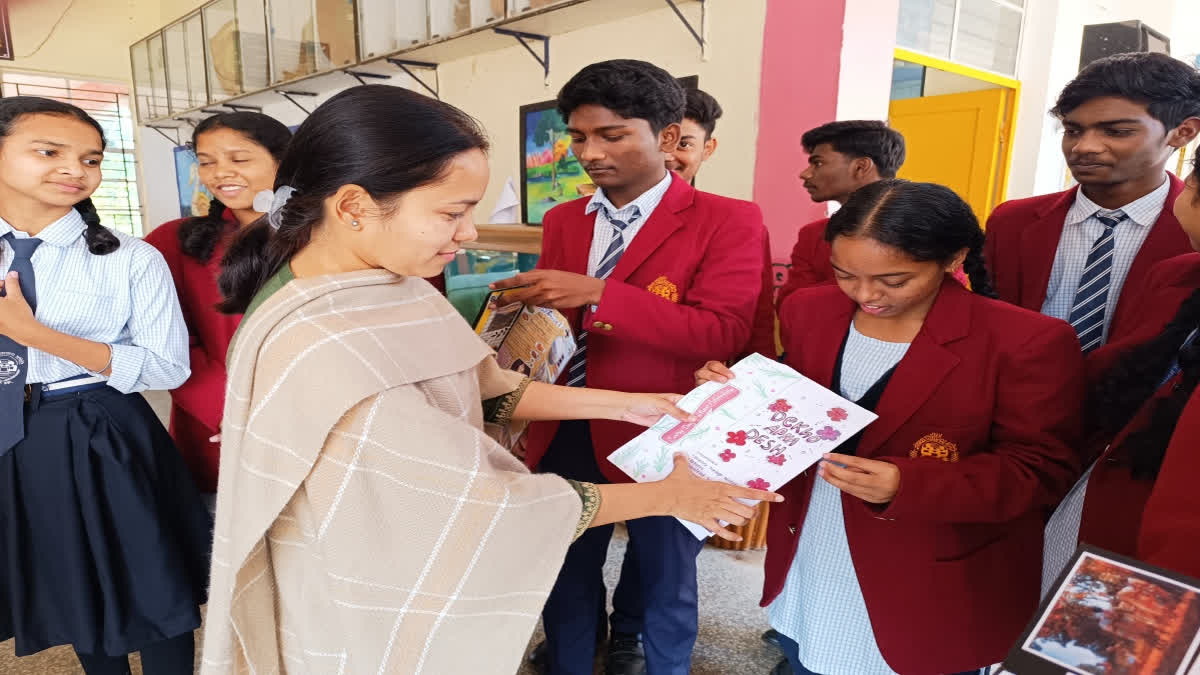Koraput (Odisha): At PM Shree Jawahar Navodaya Vidyalaya (JNV) here, education for children has transformed into something novel - it has become a canvas for creativity. And none other than the students themselves, are spearheading the movement without realising that this art-integrated learning is a key component of the National Education Policy (NEP) 2020. The school ensures that students learn through projects that blend academic rigour with artistic expression.
To cite an example, the 'Dekho Apna Desh' brochure program that gave students an opportunity to explore India’s cultural heritage. Guided by teacher Pratibha Bhalla, the students visited Koraput’s heritage spots to experience its history firsthand. “This hands-on experience brought their learning to life, allowing them to visualize their heritage beyond textbooks which they later translated into written word and pictures in the brochure,” teacher Bhalla explained.
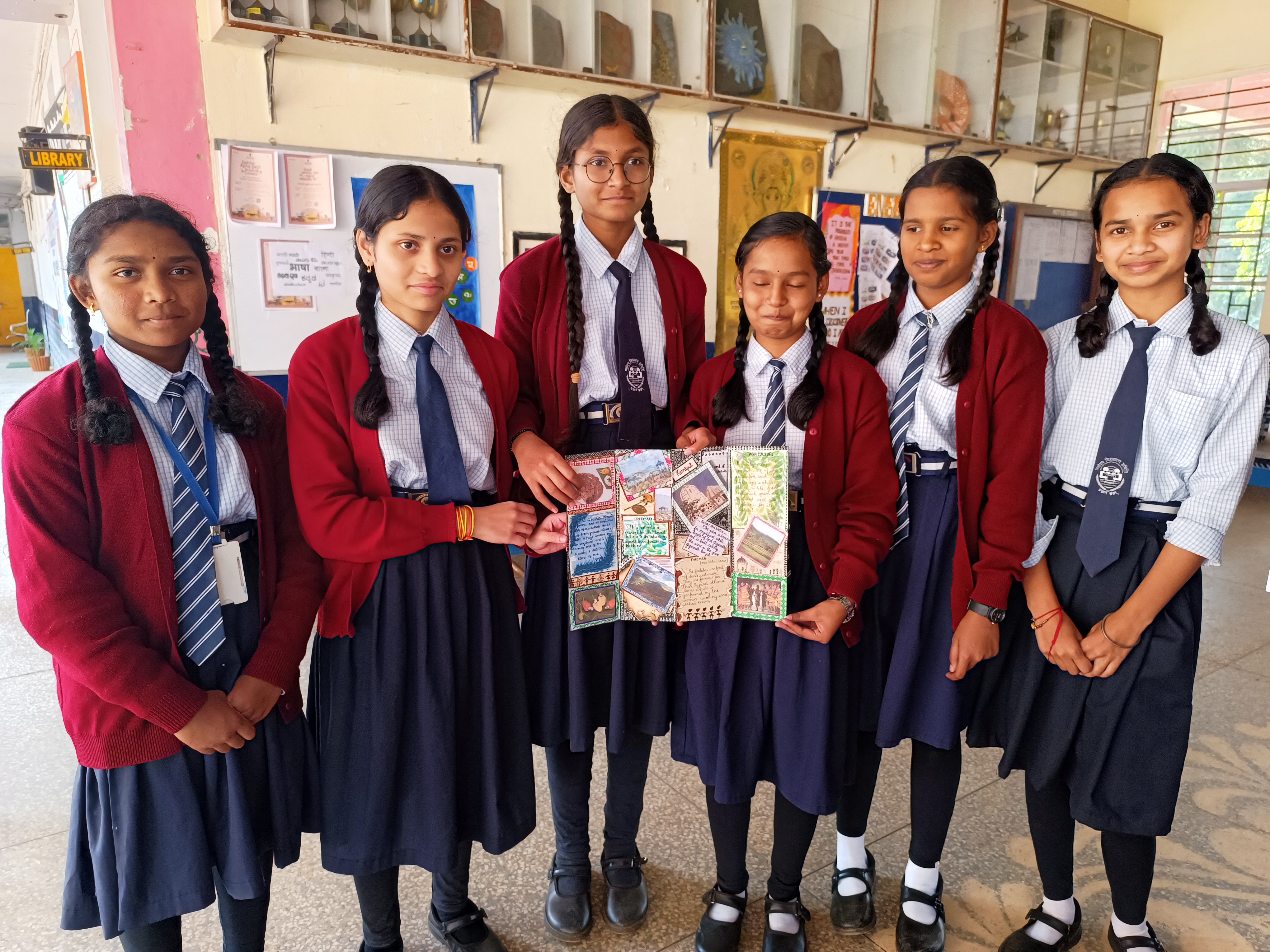
In yet another project, through visual arts and interactive demonstrations, the students learnt about pollination. Guided by science teacher Bhavani Tanwar, they were imparted training through art-integrated pollination process. The project earned recognition for effectiveness nationally. “This approach merges creativity with academics, making learning both engaging and meaningful. The children learn with ease without being forced to understand mechanically,” Tanwar said.
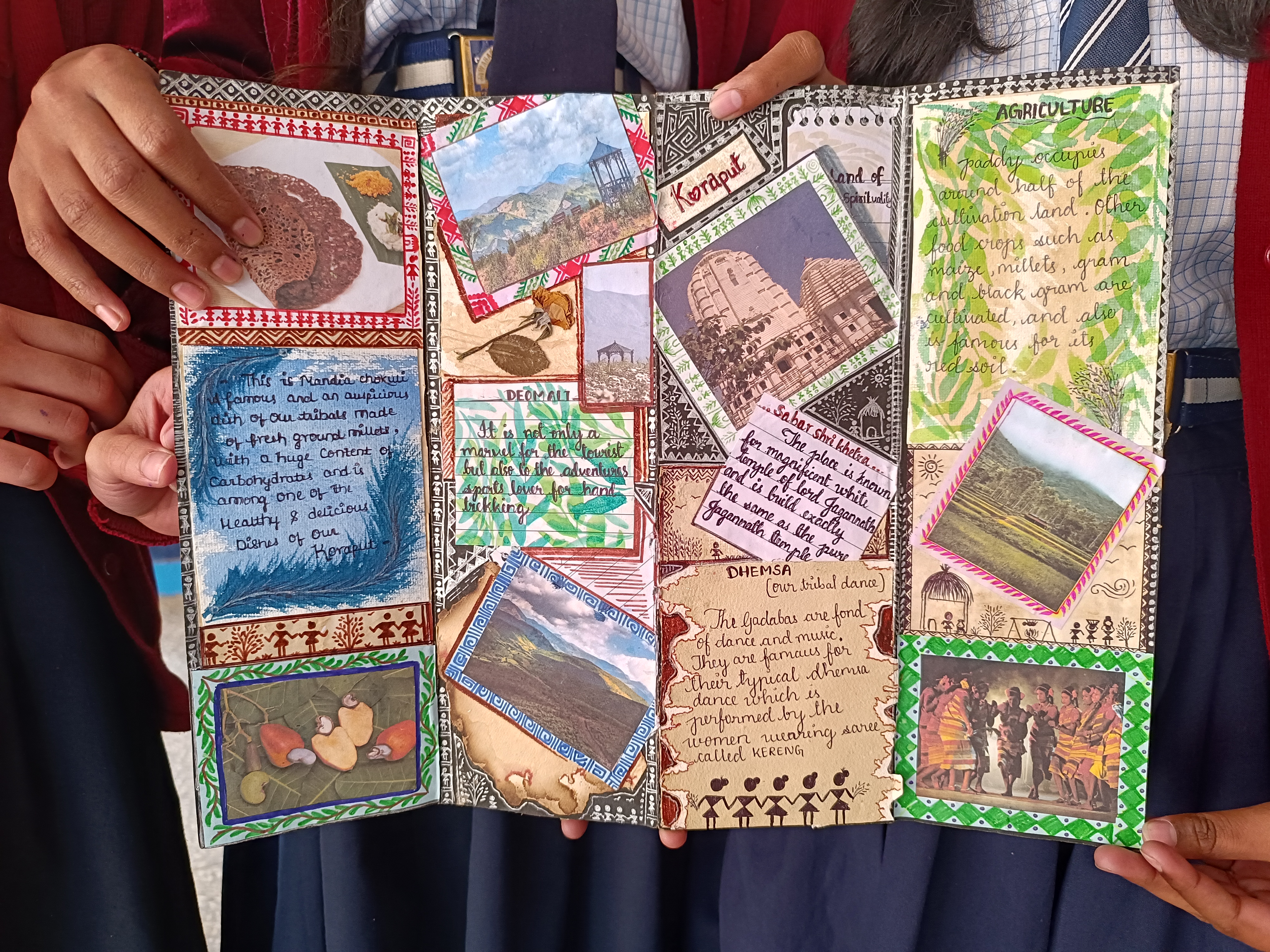
Students’ Perspectives
For students like Shradharani Pati who is studying in Class IX, art integration has increased her interest giving her an enriched experience. “We physically represented lines and points in math, making concepts enjoyable and fostering teamwork,” she said. Similarly Khusi Choudhury of class VII spoke on how interactive, art-based lessons often help them better in comparison to smartboard sessions. “It allows us to express ourselves while deepening our understanding,” she added.
"The program also nurtures emotional and social skills. “Since we interact at an emotional level, this method improved our cooperation and strengthened bonds with peers and teachers,” said Nikita Das of Class IX.
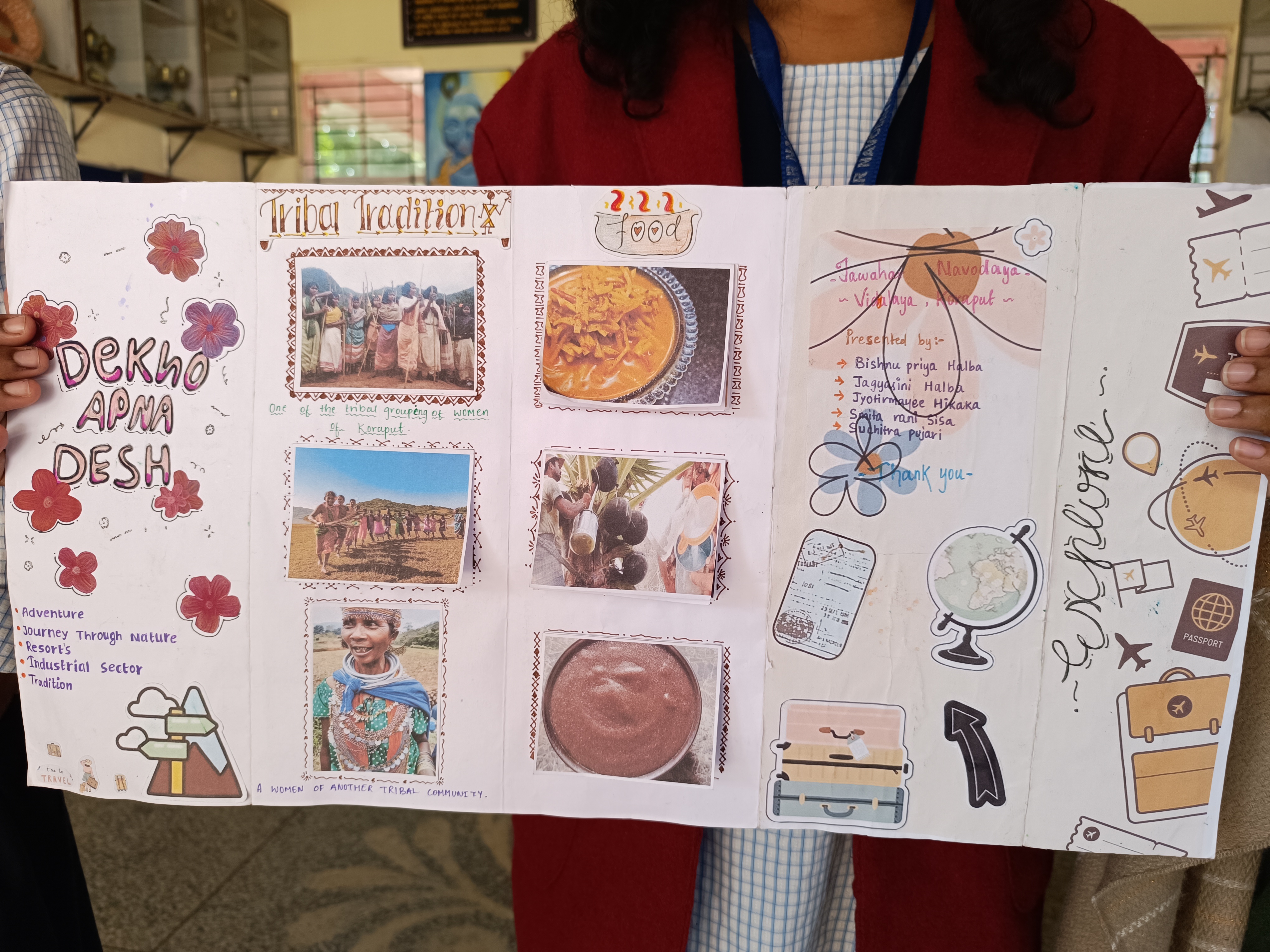
Educators’ Insights
Senior Block Education Officer Srikant Jani praised the school’s efforts, stating that integrating art and aligning it to classroom education as per NEP 2020 will have a long term benefit. “Art-based education closes learning gaps by fostering experiential and competency-based learning. This also helps students not to adopt rote method which gets boring for many learners,” he said.
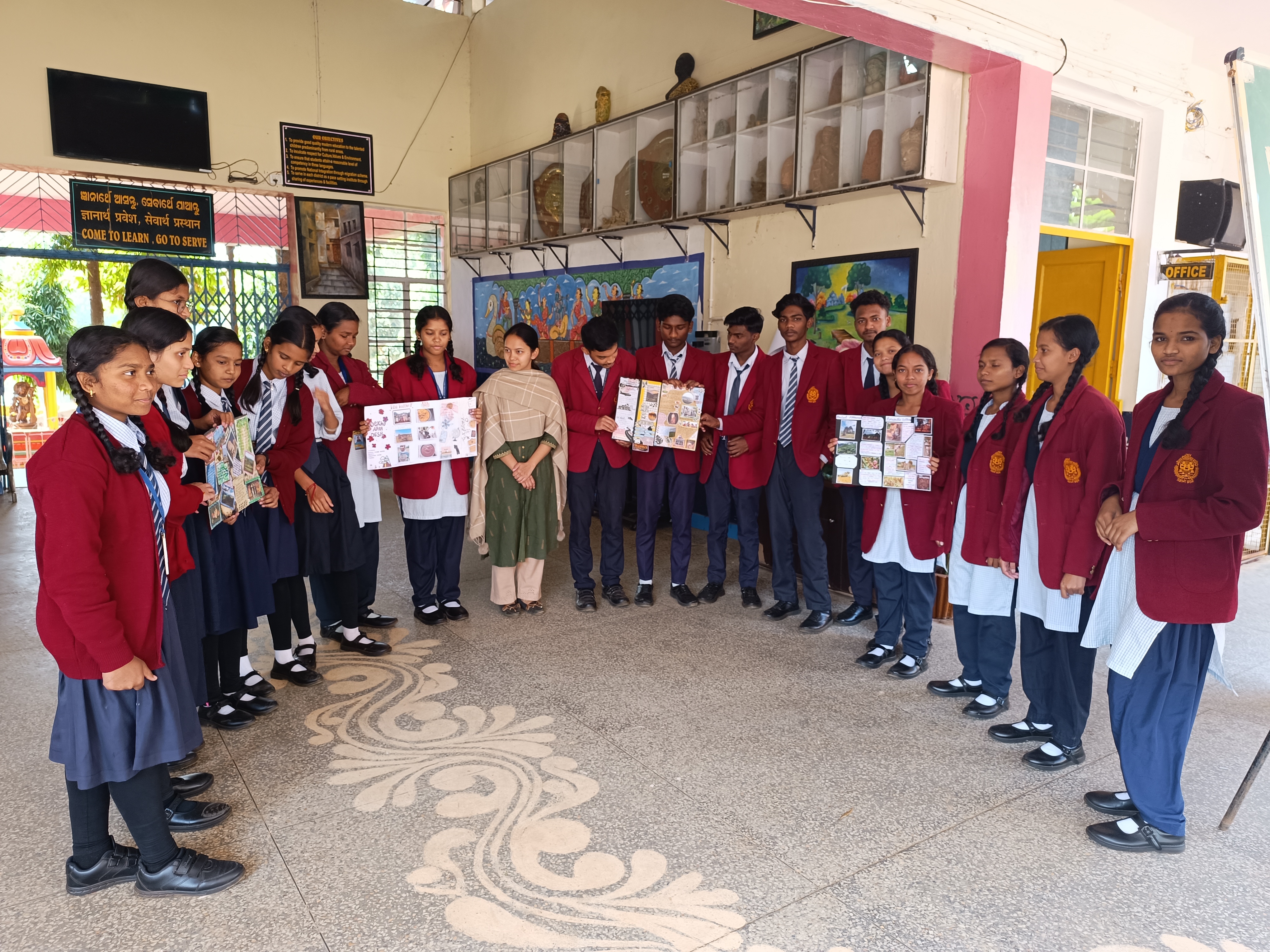
Principal of the school Milani Mitra was all praises for the students and the teachers alike. She spoke on how art integration gives students an opportunity to learn more than the textbook and be less burdensome mentally. "This process gives teachers a chance to weave culture into education. It bridges the gap between education and culture, making classrooms joyful and holistic,” she remarked.
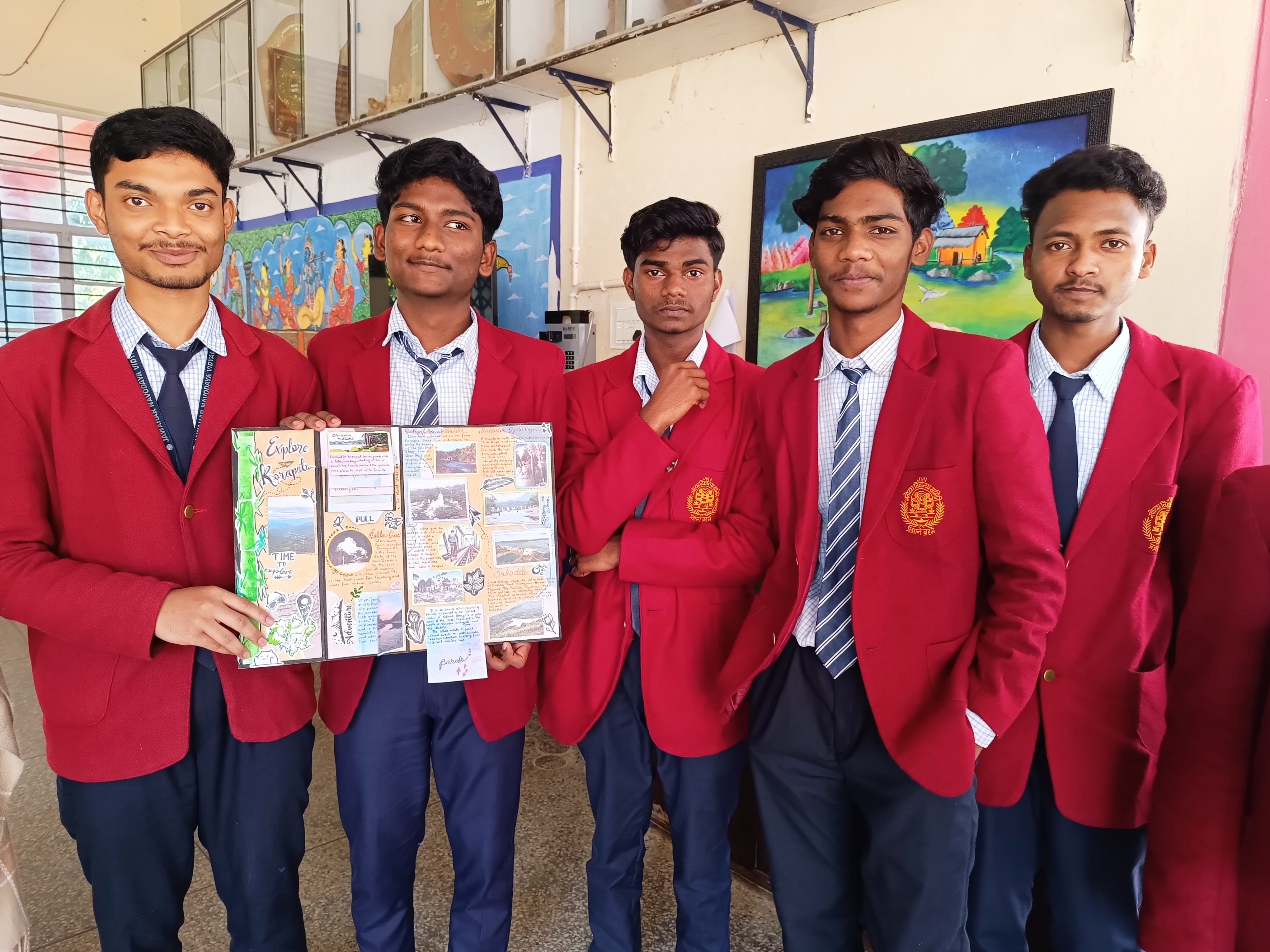
A Model for Future Education
Parents of the students studying in the school feel, they see a marked change in their wards. Their interest to go to school and learn everyday with new zeal is a blessing, say parents. "The transformative power of art-integrated learning is very well exemplified by JNV Koraput. By fostering creativity, collaboration, and cultural understanding, this approach is not just enriching education—it’s preparing children for a dynamic future," they said.
Read More
